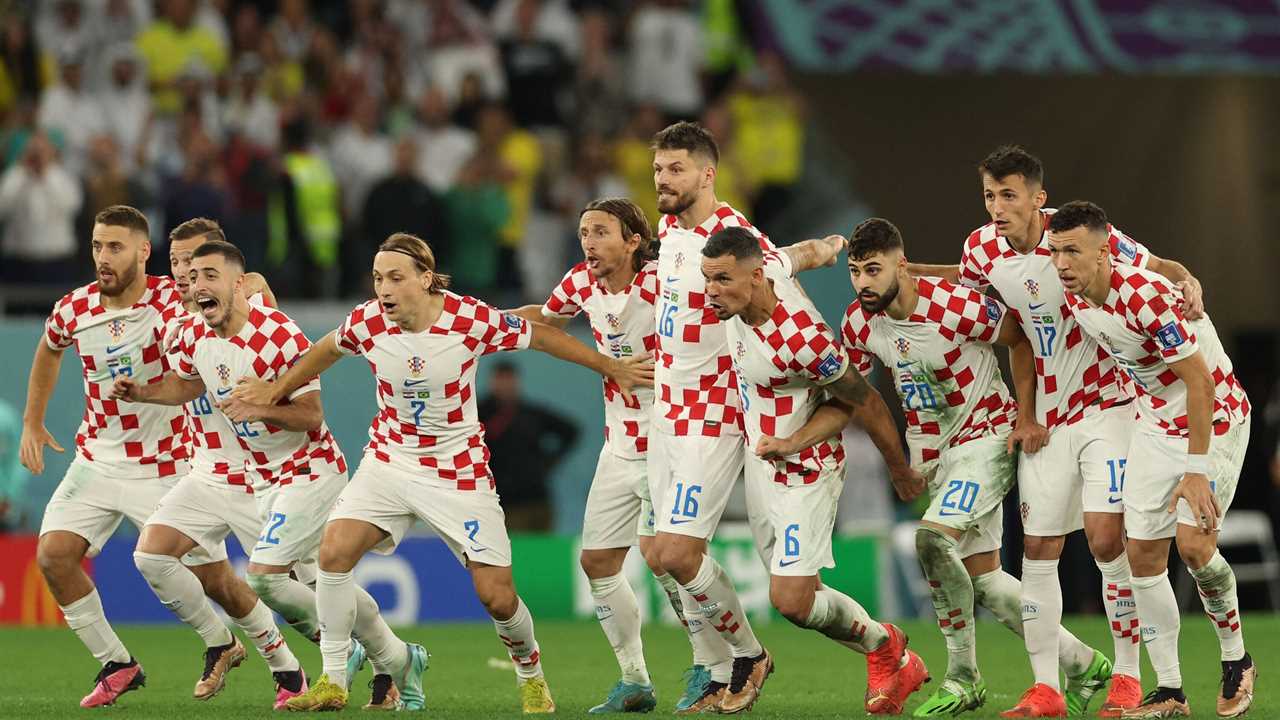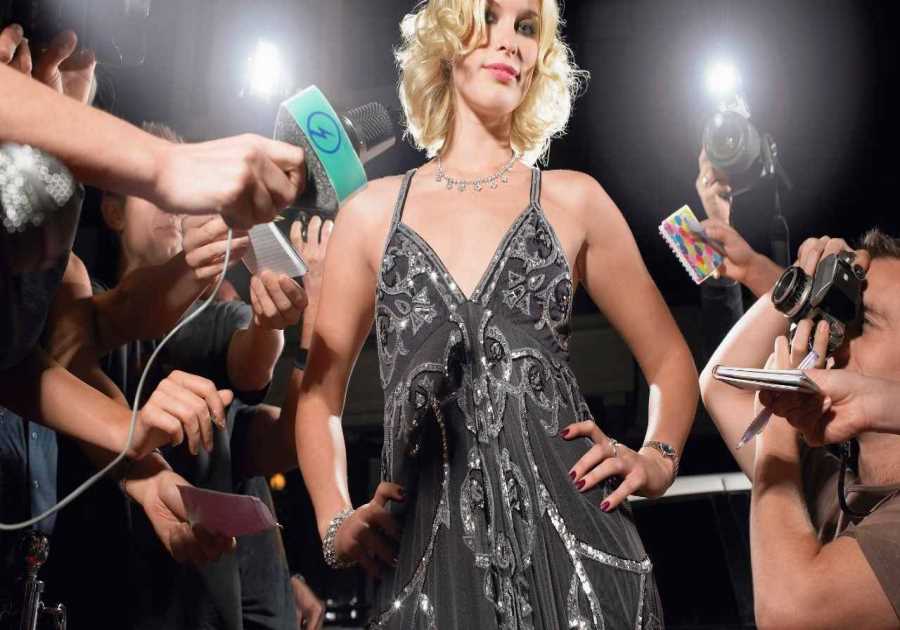
DOHA, Qatar — Zlatko Dalic knew that something had to change. Dalic, the coach of Croatia, was just not sure, at that precise moment, exactly what it was. Brazil was starting to ratchet up the pressure, its bright yellow jerseys pouring forward in waves. His Croatia team was scrabbling to repel the attacks. His players, he could see, were barely hanging on.
His first instinct was that he needed new blood, fresh legs. In particular, his prized midfield — the timeless Luka Modric and his unflinching lieutenants, Marcelo Brozovic and Mateo Kovacic — seemed to have pushed itself beyond its limit. Perhaps, he and his staff wondered, an increase in energy might offset the unavoidable decrease in quality.
In a break in play, Dalic summoned Modric, Croatia’s totemic captain, to the sideline. He was considering “replacing the midfield,” Dalic told him. What did he think? Dalic should have known the answer. Modric, at the age of 37, gave the idea the shortest shrift imaginable.
Modric stayed on. He was there as Croatia held out for extra time. He was there as Bruno Petkovic scored a late equalizer to send the game to penalties. He was there to take, and score, the third spot-kick, the one that swept a country of fewer than four million people to the brink of a second successive World Cup semifinal.
“This is Croats,” Dalic said. “They take it when it is most difficult.”
That indefatigability, that refusal to countenance defeat, has become Croatia’s calling card. On its run to the World Cup final in 2018 and to a semifinal against Argentina here, Croatia played five knockout games. All five went to extra time. Four of them went to penalties. Croatia won them all. It has become a team that does not so much beat its opponents as outlast them.
“We know nobody likes to play against us,” defender Borna Sosa said as his teammates were still celebrating Friday’s victory against Brazil. “We have really good players and a really good mentality, and it is always really difficult to win against us. We are ready to go until the end.”
A Brief Guide to the 2022 World Cup
What is the World Cup? The quadrennial event pits the best national soccer teams against each other for the title of world champion. Here’s a primer to the 2022 men’s tournament:
There are varying interpretations for the source of that indomitability. Both Modric and Dominik Livakovic, the goalkeeper, have explicitly linked it at various points during the tournament to the country’s relatively recent struggle for independence, a fresh trauma that a handful of players on the squad experienced firsthand.
“We fought a lot to win our independence as a nation, and we continue to fight for the last drop,” Modric said. His family fled Croatia when he was only 6 to escape the fighting; his grandfather was executed by Serbian soldiers. His younger teammates grew up still in the shadow of the war. “This is how we were raised,” Livakovic said.
Others have slightly different, if not unrelated, explanations. Croatia’s first World Cup as an independent nation came in 1998, when a team frosted with the final generation of stars produced by the old Yugoslav system — Davor Suker, Robert Prosinecki, Zvonimir Boban — streaked, unheralded, into the semifinals.
That achievement, Boban said, not only served as Croatia’s first great act of self-expression to the international community — it “made sure people in the world know we have some big value,” he said — but it also created what he described as a “cult of the national team.”
“Croatia has been very bonded to soccer,” Boban said. “It is deep in our culture that it is the main thing in Croatian society. My generation created a cult, and the next generation respected that.”
The country’s record bears that out. Between 1998 and 2018, Croatia never made it beyond the group stage at a World Cup, and it has still never won a knockout game at the European Championship, where the pressure is marginally less intense but the quality, and the competition, has historically been more concentrated.
Other than the European Championship in 2000 and the World Cup in 2010, though, it has been present at every single major tournament across that period, a run of success that few nations of comparable size come anywhere close to matching.
Norway has not been to a World Cup this century. Ireland has not made it since 2002. Both are home to a million more people than Croatia. Even Greece, with more than double its near-neighbor’s population and a team that won the European Championship in 2004, has been to only three of the past eight World Cups.
Croatia, by contrast, has not only become a fixture at these events, but has emerged as a genuine force within them, a squad capable — as the 1998 team was — of not just mustering a single impressive campaign but returning four years later, with a markedly different set of players, and doing it all again. “We have 18 new players,” Sosa, the defender, said of this year’s team. “Many of them are playing in the World Cup for the first time.” It has made no difference at all.
That is testament not just to the steady flow of players emerging from the country’s academies — “I don’t know if it is genetics, environment or geography,” Boban said, “but we just have so much talent” — but to the culture that has been created within the national team, too.
Almost every young player in Croatia spends time early in their career at one of Croatia’s two great club teams, Dinamo Zagreb and Hajduk Split, meaning new arrivals to the senior squad are generally greeted by friendly faces. The country’s slogan for the tournament, “family,” is more than just a bit of marketing spiel.
There is no firm hierarchy among the team; even relative neophytes are encouraged to make their voices heard. Dalic, the coach, takes a deliberately low-key approach to discipline, trusting the likes of Modric and his fellow veterans to lead by example, to ensure that their personal standards are met, to pass on their wisdom, to make clear to everyone just what is expected.
Those expectations are so high, Sosa said, that the team has adopted a policy of “not celebrating goals, just celebrating wins.” It is this, Boban said, that is the final ingredient in Croatia’s success: Outside its borders, it may look and feel like an underdog, but that is not quite how it sees itself.
“I was speaking with one of my friends, Prosinecki or Slaven Bilic, about this a few months ago,” Boban said. “When we played, we were always favorites for our people. When we play Germany, the people think we have to win. ‘Of course we should beat Germany!’
“We play Italy? ‘Italy is not so talented.’ We play Brazil? ‘Yes, but we are better than them.’ It is normal that they are so proud. I don’t know how this became in our culture, but this is Croatia. You feel it, and that pressure makes you better. It makes you more ambitious.”
Now, for the second time in four years, Croatia stands on the brink of doing the impossible. Victory over Argentina would take the country to a second straight World Cup final. Once again, at the World Cup, the team that refuses to be beaten stands ready to make it all the way to the end.
Tariq Panja and James Wagner contributed reporting.
-----------------------
By: Rory Smith
Title: The Team That Refuses to Lose
Sourced From: www.nytimes.com/2022/12/12/sports/world-cup/croatia-luka-modric.html
Published Date: Mon, 12 Dec 2022 19:12:09 +0000






